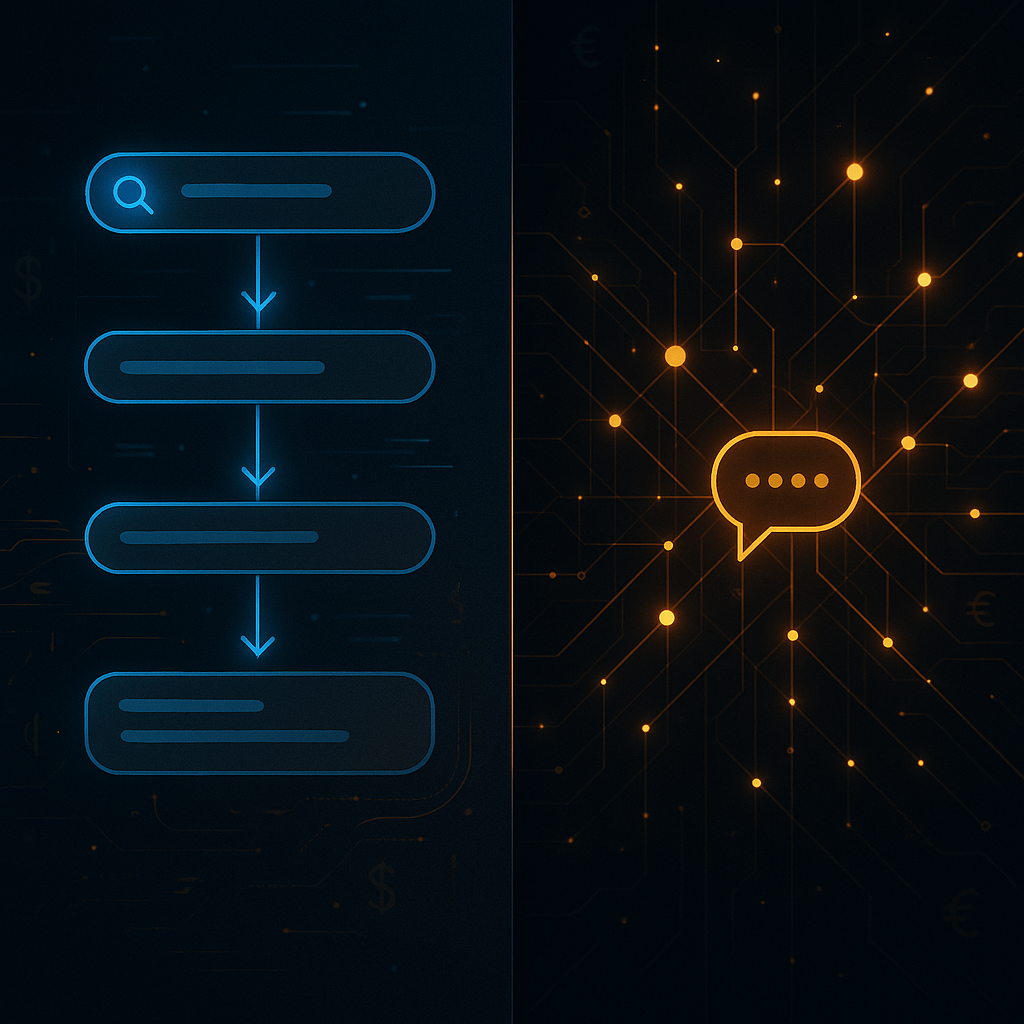Google's AI Mode: The Search Transformation Reshaping Digital Commerce

Howard Ekundayo
May 28, 2025

The search landscape is undergoing its most profound transformation since PageRank. While industry observers focus on feature comparisons between AI assistants, the real disruption lies in how Google's AI Mode fundamentally restructures search economics, advertiser relationships, and platform dynamics. Having led engineering teams at both Google Search and OpenAI's ChatGPT, I've observed this evolution from multiple perspectives. What emerges is a strategic playbook for navigating the next wave of search transformation.
The most striking revelation is the revenue model inversion. Traditional search operates on a simple equation: more clicks equal more revenue. AI Mode breaks this model entirely. We're seeing significant reductions in raw click volume, yet revenue per user session increases substantially. The key lies in what I call "conversational commerce." Query chains in AI Mode extend far beyond traditional search interactions. This creates premium pricing for high-intent conversational flows, fundamentally changing how advertisers must think about search investment.
"The real disruption isn't AI replacing search. It's AI Mode creating 'zero-click commerce' where transactions happen within the conversation itself, commanding dramatically higher value for direct conversion paths."
The Reddit Paradox: When Content Becomes Currency
AI Mode's relationship with Reddit reveals a fascinating paradox that reshapes content economics. Reddit traffic from Google has decreased substantially for informational queries, yet Reddit's value as a data source has increased exponentially, commanding significant annual licensing deals. Reddit content consistently scores among the highest trust signals for subjective queries. AI Mode leverages this trust by extracting Reddit's collective intelligence without sending traffic back.
This creates a dangerous dependency. Reddit's recent API restrictions could significantly impact AI Mode's performance on lifestyle and recommendation queries. The strategic implication is clear: Google will need to share meaningful portions of AI Mode revenue with high-value content creators to maintain data access. This fundamentally reshapes the organic search economy from traffic-based to data-licensing models. Publishers who understand this shift early will capture disproportionate value in the new ecosystem.
Architectural Advantages: Building for Predictive Intent
The technical architecture of AI Mode processes exponentially more contextual signals than traditional search, enabling what I call "predictive intent modeling." This isn't just about understanding what users want now. It's about anticipating needs several queries ahead. Users demonstrate much higher latency tolerance for conversational interfaces when the quality improvement is significant. Google leverages this tolerance through progressive rendering, showing initial results nearly instantly while computing deeper insights in the background.
The real innovation lies in the context accumulation layer. Traditional search's stateless architecture treats each query independently. AI Mode builds user understanding across sessions, creating switching costs that are orders of magnitude higher than traditional search. This architectural shift from inverted indexes to vector embeddings dramatically increases compute costs but enables semantic understanding that transforms advertising. Instead of keyword matching, AI Mode infers purchase intent from conversational patterns, creating pricing that reflects true user value rather than keyword competition. For engineering leaders, this signals a fundamental shift in how search infrastructure must be conceived and built.
Learn more about this article
The AI assistant uses the content of this article to provide relevant answers. Information may not be 100% accurate.
Powered by claude-opus-4-20250514